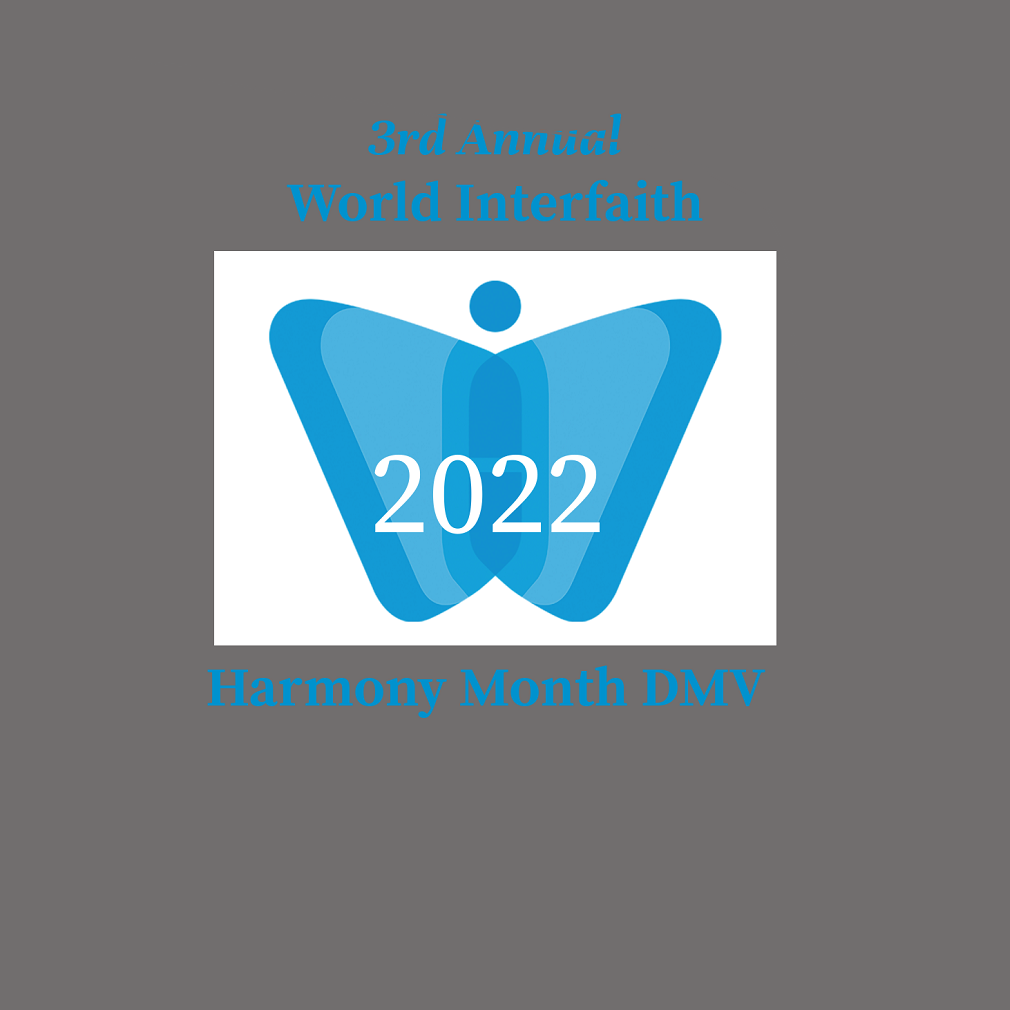
For some years now, Hashmat and I have been meeting (in person and then on-line) as members of Tysons Interfaith representing our respective congregations. Hashmat is a member of the McLean Islamic Center, a respected and valued leader of Tysons Interfaith, and a friend. It has been my privilege to take part in an Iftar meal at the McLean Islamic Center. Hashmat and I both appreciated taking part in a series of conversations sponsored by Tysons Interfaith that examined the concept of the “Oneness of Humanity” through the lens of various faith traditions.
Recently, we were both interested to learn that our friends at the Interfaith Council of Metropolitan Washington (IFC) will be highlighting a series of events in observance of World Interfaith Harmony Week. https://ifcmw.org/ihdmv2022/
Hashmat wanted to know more about World Interfaith Harmony Week, so he visited the website and this is what he found:
The World Interfaith Harmony Week
Annual UN Observance Week: Feb. 1-7
The World Interfaith Harmony Week was first proposed at the UN General Assembly on September 23, 2010 by H.M. King Abdullah II of Jordan. Just under a month later, on October 20, 2010, it was unanimously adopted by the UN and henceforth the first week of February will be observed as a World Interfaith Harmony Week.
The World Interfaith Harmony Week is based on the pioneering work of The Common Word initiative. This initiative, which started in 2007, called for Muslim and Christian leaders to engage in a dialogue based on two common fundamental religious Commandments; Love of God, and Love of the Neighbour, without nevertheless compromising any of their own religious tenets. The Two commandments are at the heart of the three Monotheistic religions and therefore provide the most solid theological ground possible.
The World Interfaith Harmony Week extends the Two Commandments by adding ‘Love of the Good, and Love of the Neighbour’. This formula includes all people of goodwill. It includes those of other faiths, and those with no faith.
The World Interfaith Harmony Week provides a platform—one week in a year—when all interfaith groups and other groups of goodwill can show the world what a powerful movement they are. The thousands of events organized by these groups often go unnoticed not only by the general public, but also by other groups themselves. This week will allow for these groups to become aware of each other and strengthen the movement by building ties and avoiding duplicating each others’ efforts.
It is hoped that this initiative will provide a focal point from which all people of goodwill can recognize that the common values they hold far outweigh the differences they have, and thus provide a strong dosage of peace and harmony to their communities.
What a beautiful thing this is, particularly as our world struggles to overcome divisiveness and bigotry that is often the result of not truly knowing our neighbors. Hashmat and I are honored to be part of a great group of people of different faith traditions and spiritualities who are working together to promote interfaith understanding, spiritual growth and human connection in the rapidly growing Tysons area. We applaud the goals of Interfaith Harmony Week as it is celebrated globally and locally.
To learn more about World Interfaith Harmony Week, please visit: https://worldinterfaithharmonyweek.com/
This blog post is the expressed opinion of its writer and does not necessarily reflect the views of Tysons Interfaith or its members.
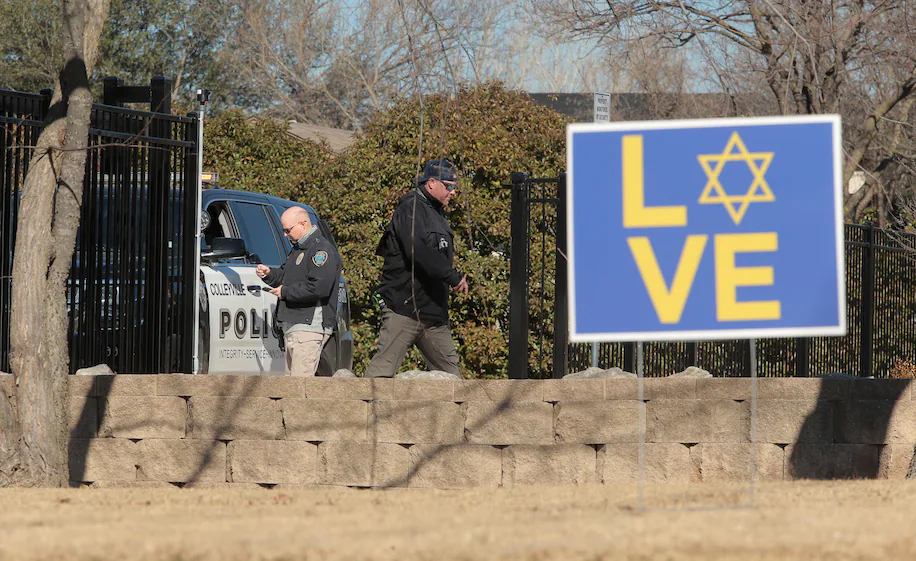
Photo description: Law enforcement officials investigate the hostage incident at Congregation Beth Israel synagogue in Colleyville, Tex. (Ralph Lauer/EPA-EFE/Shutterstock
Undoubtedly like many of you, we were saddened by the events this past weekend in Colleyville, Texas. Our hearts go out to those involved and to our Jewish friends locally here in Northern Virginia. The Washington Post had a good article summarizing the events of the weekend.
Two quotes from the article stood out to us. First was a powerful statement from Rabbi Charles Cytron-Walker of Congregation Beth Israel a week before this weekend’s crisis, which is very relevant post-crisis, even through the sadness:
“In that last sermon a week ago, Cytron-Walker recognized that some people now find it hard to summon hope. ‘What can we do?’ he asked. ‘The answer is — quite a lot! . . . In the midst of chaos and uncertainty, God asked the Israelites to face their fears and do something. . . . We are living in the midst of a different kind of chaos and uncertainty and it’s our turn to do something. . . . All we need to do is act.’”
The other quote from the article related to interfaith support and cooperation during the crisis, which is a model the members of Tysons Interfaith applaud and attempt to emulate.
“Two blocks in the other direction from Beth Israel, at Good Shepherd Catholic Community, Cheryl Drazin, a Dallas-based vice president of the Anti-Defamation League’s regional division, and other local faith leaders set up their own command center, where representatives from the Israeli consulate in Houston and relatives of the hostages gathered. Drazin saw Catholic priests and Chabad rabbis, in their long beards and black suits, sitting in a waiting area comforting each other.
Bob Roberts, an evangelical pastor at Northwood Church in Keller, five miles from Beth Israel, was eating lunch with his wife at an Italian restaurant around noon when they started getting texts about the hostage situation. He called Muslim leaders and they gathered at Good Shepherd, where Roberts spent the afternoon with the Cytron-Walker’s wife and daughter.
‘We’re all people of faith,’ Roberts said. ‘We have disagreements. The reality is we believe in God. And so we prayed.’
At one point, the wife of Shahid Shafi, a prominent Muslim figure in the county and a former city council member in Southlake, came into the room. She and the rabbi’s wife embraced. ‘It was just profound,’ Roberts said. ‘I just remember thinking to myself: People could use this [situation] as a tool to do more antisemitic and Islamophobic-type things. But this is the reality. A Muslim and a Jewish lady, embracing. This is how it’s done.’”
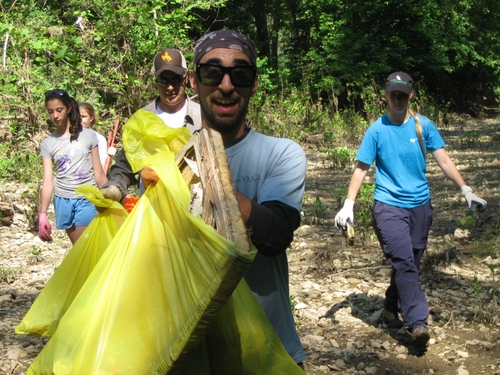
MLK Day is the only federal holiday designated as a national day of service to encourage all Americans to volunteer to improve their communities.
Showing compassion/serving can come in many forms. It can be as simple as reaching out to someone you have not talked to in a long time, checking on an elderly neighbor, or buying lunch for an overworked medical professional.
If you are interested in MLK Jr. Day projects on a larger scale, here are a few ideas that were shared in my church’s monthly newsletter:
Alexandria
Potomac Stewards Cleanup — river cleanup at Four Mile Run and at Jones Point Park. www.eventbrite.com/e/potomac-stewards-cleanup-martin-luther-king-jr-day-of-service-tickets-37495579287?aff=es2
Arlington County
Volunteer Arlington — make meals, assemble winter care packages, clean up parks, assemble children’s blankets for homeless shelters, learn about hunger and affordable housing, etc. volunteer.leadercenter.org/2022-mlk-day-service
District of Columbia
City Year — projects at three schools in the H Street NE corridor. www.cityyear.org/dc/events/mlk-day-of-service/
Washington National Cathedral — a virtual event for families; will include a sermon by Martin Luther King Jr’s granddaughter Ms. Yolanda Renee King. cathedral.org/event/remaining-awake-a-service-in-observance-of-dr-martin-luther-king-jr-day/
Fairfax County
Volunteer Fairfax — event is geared toward elementary-aged kids and their parents with various service stations. www.volunteerfairfax.org/events/mlk-jr-weekend-of-service-2022/
Potomac Stewards Cleanup — river cleanup at Turkey Run in McLean. www.eventbrite.com/e/potomac-stewards-cleanup-martin-luther-king-jr-day-of-service-tickets-37495579287?aff=es2
Reston Community Center — three days of activities: concerts, packing of lunches, outdoor cleanup, and a special activity for 1st-6th graders at RCC Hunters Woods. www.restoncommunitycenter.com/attend-shows-events-exhibits/2022-mlk-celebration
Falls Church Chamber of Commerce — “March for Social Justice, Unity, and Racial Healing” begins at the Tinner Hill Monument in the area where African-American families bought land after the Civil War and whose descendants established the first rural branch of the National Association for the Protection of Colored People. www.fallschurchchamber.org/events/details/3rd-annual-martin-luther-king-day-march-for-social-justice-unity-and-racial-healing-01-17-2022-32569
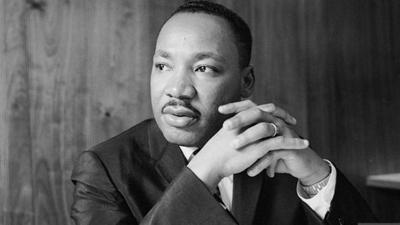
Each year we commemorate Dr. Martin Luther King, Jr. as a champion of racial justice and civil rights and as an inspiration for public service. As Eboo Patel points out, moreover, Dr. King was a major force for religious diversity and interfaith cooperation. www.beaconbroadside.com/broadside/2013/04/mlk-interfaith-visionary.html. Not only did he seek out practical ideas or support from people of other traditions, but he also saw that such cooperation arose from a common source and in service of a shared vision for the future of humanity.
In one of his last major addresses, he called for “a worldwide fellowship that lifts neighborly concern beyond one’s tribe, race, class, and nation.” He viewed this “embracing and unconditional love for all mankind” as “a force which all of the great religions have seen as the supreme unifying principle of life.”
Or as he wrote in his last book: “We have inherited a large house, a great ‘world house’ in which we have to live together—black and white, Easterner and Westerner, Gentile and Jew, Catholic and Protestant, Muslim and Hindu—a family unduly separated in ideas, culture and interest, who, because we can never again live apart, must learn somehow to live with each other in peace.”
So, whether we celebrate Dr. King’s legacy by becoming more active in and aware of racial and social justice issues or by engaging in simple service to our neighbors, let us try to seek common cause with partners of other faiths and cultural traditions. (For those interested in exploring more on the theme of Dr. King’s World House, please see the following: kinginstitute.stanford.edu/liberation-curriculum/lesson-plans/activities/kings-world-house
This blog post is the expressed opinion of its writer and does not necessarily reflect the views of Tysons Interfaith or its members.
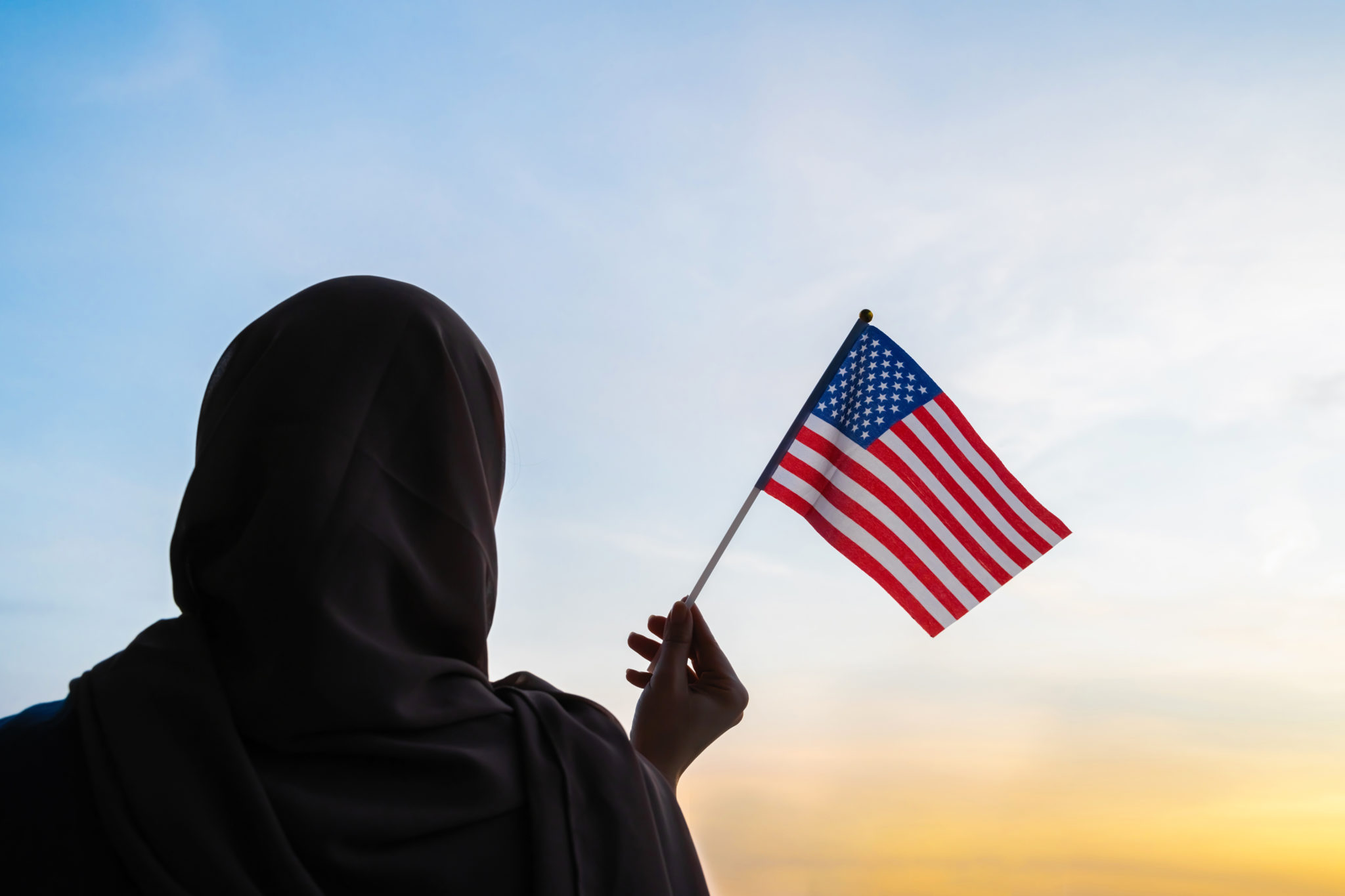
Afghan families continue to be settled in Fairfax County and northern Virginia. Their needs are great as they begin the arduous and long-term task of becoming self-sufficient.
Several Tysons Interfaith faith communities are supporting evacuee families. Levels of support for families range from donations, to logistical support to full sponsorship.
The faith communities of Tysons Interfaith recommend the following resources for individuals/congregations who want to help:
LIRS – Lutheran Immigration and Refugee Service: https://www.lirs.org/
LSSNCA – Lutheran Social Services of the National Capital Region: https://lssnca.org/
NoVA RAFT — https://www.facebook.com/VARAFT/
FAMILUSA — https://www.familusa.org/
KOMAC Foundation: — https://www.komakhelp.org/
Just Serve — https://www.justserve.org/projects/2a23c37e-76cc-4f45-ae1f-1371f6331d9f
Catholic Charities Diocese of Arlington County: https://www.ccda.net/need-help/immigrants-and-refugees/migration-and-refugee-services/
Ethiopian Community Development Commission: https://www.ecdcus.org/
Fairfax County Afghan Newcomers Information and Resources: https://www.fairfaxcounty.gov/topics/afghan-refugee-information-and-resources

As we enter winter months, please keep our neighbors in need in mind. Local food pantries, such as SHARE and Food For Others can always use donations and manpower.
In addition, our friends at FACETS sent out an appeal this week for their annual holiday gift drive:
We need your help! With local families struggling to make ends meet, we have received over 600 requests for gifts and toys. We are hearing from many parents and families who have never reached out to us before for assistance.
For years, our amazing community has ensured that the children, families and individuals served by FACETS can celebrate the season with their loved ones.
This year, we have been very blessed to have many of you step up as Angel Tree donors to fulfill holiday wishes. However, the requests are still coming in – and these new families need all of us.
With gratitude in our hearts, we are asking if you can please help provide toys, presents and gift cards for our community’s most vulnerable.
Ideally, all unwrapped gifts should arrive at FACETS’ main office by Wednesday, December 15th at 12 noon so our elves from SERCO can wrap them that evening.
- Monetary Donations: Make a donation to FACETS, and we’ll do the shopping for you! To donate online, CLICK HERE. (Please indicate “Holiday Gifts” in the Special Instructions field.) To donate by mail, please send checks made payable to “FACETS” to FACETS, 10700 Page Avenue, Building B, Fairfax, Virginia 22030.
- Donations of Toys, Gift Cards & Presents: Download our list of needed gifts and add something to your Christmas shopping to drop off this week. Donations can be dropped off Monday – Friday, 9am to 3pm, at the FACETS Main Office: 10700 Page Avenue, Building B, Fairfax, Virginia 22030.
- Virtual Shopping via our Amazon Wish List & Amazon Smile: You can also ship gift cards and toys directly to FACETS by using our Amazon Holiday Gift Wish List. And, when you buy from Amazon Smile and select “FACETS Cares” as your charity of choice, a percentage of your purchase price goes back to support the children, families and individuals served by FACETS’ programs.
- Angel Tree: Angel Tree wish lists are still available. If you are your team are interested in “adopting” a child or family this season, please reach out to Tessa at trobinette@facetscares.org.
Thank you!! We are so very grateful to you all! Should you have any questions, please do not hesitate to contact Tessa at trobinette@facetscares.org or 703-352-3268.

As we enter fall and winter months, have you been thinking about starting or joining a book club? Here are reflections from a book club at my church on books they read on an important topic and how they went about organizing their book club.
Over the past year, a group of Redeemer Lutheran members met to read and discuss books focusing on social justice. One member volunteered to set up the zoom meetings and then summarized the discussion in an email back to the group before the next meeting. The emails deepened their experience and helped them retain important parts of the books. They met weekly and discussed assigned chapters of the books and found this pattern allowed them to discuss the contents more thoroughly.
They are sharing their experiences with the congregation, first by providing a list of the books they read. They are also building a lending library they hope to offer soon.
Here is a list of the books they explored together, with a brief description:
Caste by Isabel Wilkerson: May have been the most influential book our group read in that it challenged us to think about how our entire social structure is an unrecognized caste system.
My Grandmother’s Hands: Racialized Trauma and the Pathway to Mending Our Hearts and Bodies by Resmaa Menakem: Written by a licensed clinical social worker who explores the complex effects of racism and white privilege on all races. Provided many exercises to work through our own reactions to racial trauma.
Devil in the Grove by Gilbert King: The winner of the 2013 Pulitzer Prize for General Nonfiction: A historical account of how Thurgood Marshall (before he became a Supreme Court Justice) and the NAACP brought civil rights cases to courts throughout the country. It highlighted the huge legal challenges that took place to correct injustices, how fragile some of those victories were, and how it could have all gone wrong.
His Truth is Marching On by Jon Meacham: A biography of John Lewis. We were moved by his unwavering bravery and commitment to civil rights, as well as his deep Christian faith.
Between the World and Me by Ta-Nehisi Coates: A moving account of how a young man felt about growing up Black in America, written in the form of a letter to his young son.
Dear Church, a love letter from a Black Preacher to the whitest Denomination in America (ELCA) by Lenny Duncan: A very challenging book which made us consider our own implicit racism and what our responsibility might be to address it in our church and in our neighborhoods.
The Vanishing Half by Brit Bennett: Our only novel. It introduced the subject of colorism and what sacrifices people make to integrate into the dominant society and what it costs to leave your family behind.
I am grateful to the members of my church for sharing their experience. I’ll be picking up a couple of these titles soon.
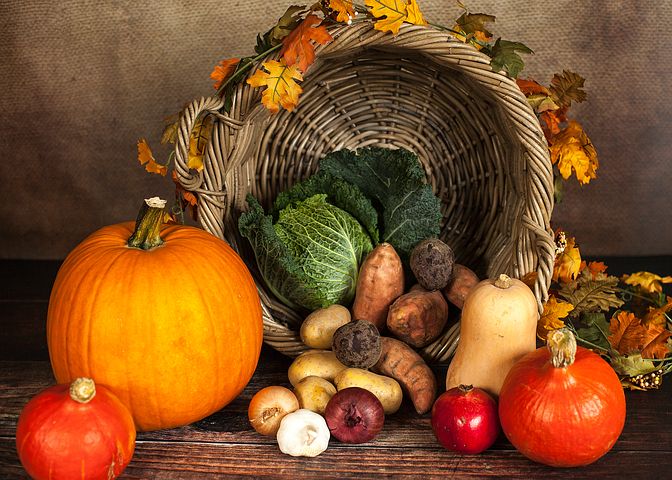
In the Tysons region, there are excellent non-profit groups serving the needs of the population. Many of our faith communities partner with these non-profits in their work. A list of some of these great groups can be found at the bottom of the Tysons Interfaith website Resources page.
As we prepare to celebrate Thanksgiving, our thoughts turn particularly to people in our community who are experiencing food insecurity. FACETS, one of the non-profits listed on our Resources page, is sponsoring a Thanksgiving Food Drive with the goal of ensuring that 450 of our neighbors have food on their tables this Thanksgiving. They are collecting food and gift cards through Tuesday, November 16. To learn more, please visit: http://facetscares.org/thanksgiving1/.
Other local organizations who distribute food for families and individuals who are experiencing hunger are SHARE of McLean and Food for Others.
As we continue to emerge from the Covid Pandemic and disruptions to supply chains, it is critically important that we deliver food to our neighbors. What better time to do this than November, the month when we pause to give thanks for our many blessings? On my list of things to be grateful for are the Tysons area non-profits doing such dedicated and important work, and deserving our support.
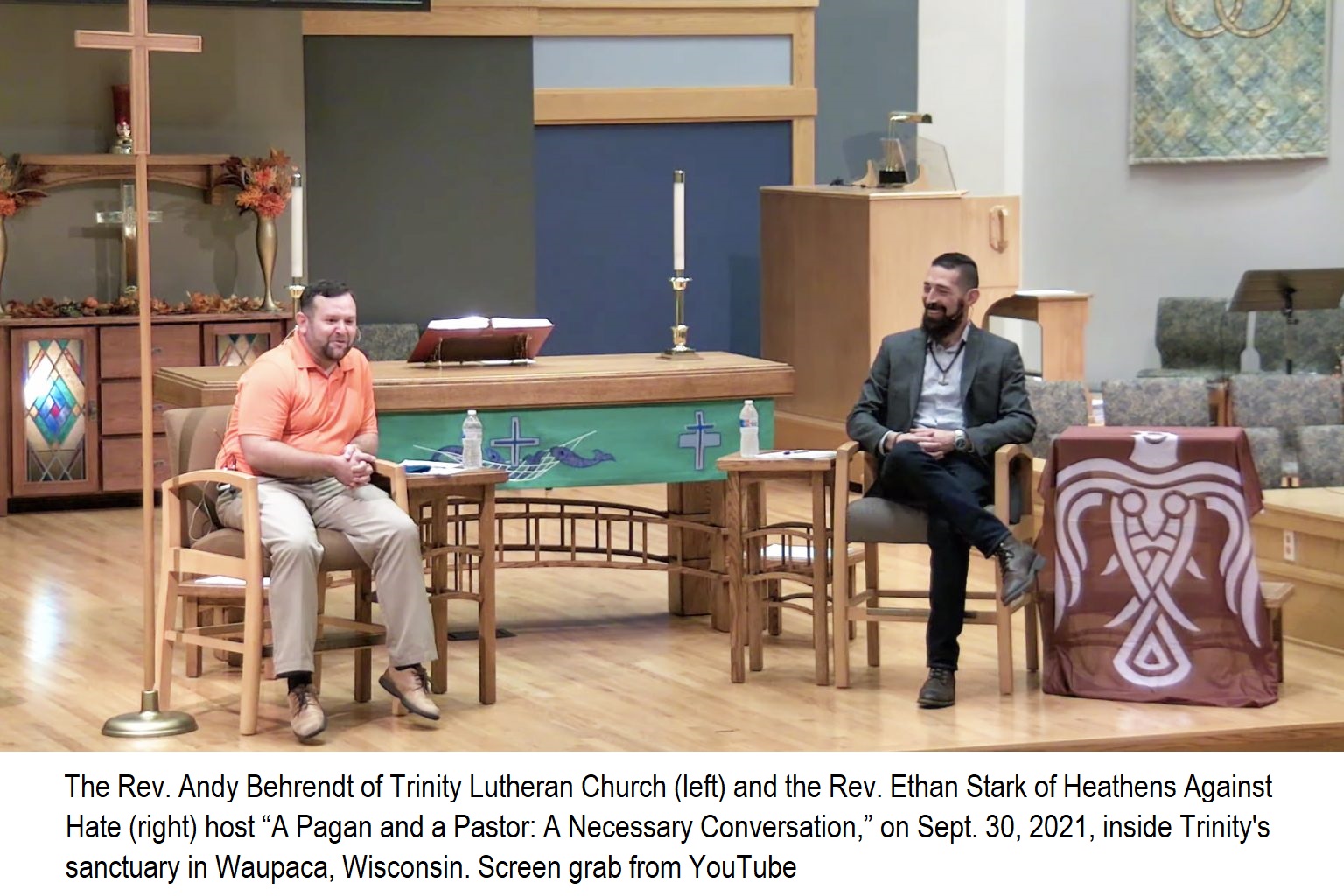
Reading an account of a dialog between a pagan clergyman and a pastor from the Evangelical Lutheran Church in America (‘We’re all interconnected’: Pagan, Christian clergy urge interfaith understanding (religionnews.com)) reminded me of some reflections on “Pentecostal Theology,” particularly as it applies to churches like the Yoido Full Gospel Church in Seoul, one of the largest in the world.
In his article, “The Contribution of David Yonggi Cho to a Contextual Theology in Korea” (Journal of Pentecostal Theology, 12.1, 2003), Allan Anderson rejects both liberal and conservative critiques of the church’s founding pastor, who recently passed away (Korean pastor David Yonggi Cho, founder of one of the world’s largest churches, has died (religionnews.com). These critics use either the American “prosperity gospel” or what some call “indigenization” to explain the growth of Cho’s church and Pentecostalism more generally outside of Europe and North America and assume that the Christian message is the same in all cultural contexts.
Even as Pastor Cho criticized the Buddhism of his youth – he had particularly harsh words for Zen – he also talked about a “fourth dimension” akin to the miraculous “healing” powers of Korean shamanism, Buddhism, yoga, and Japanese religions like Soka Gakkai. Cho also talked about an “evil spirit world” that he placed “under the power and authority of almighty God,” a view that enraged many non-Korea evangelicals. While Cho clearly distinguished Christian revelation from the traditional Asian religious view, his “experience of this Asian religious spirituality and its element of the miraculous” can be seen as the basis of a theology in which visions and dreams act as language, drawing the nascent believer in to what he called a process of “incubation” or “pregnancy” as a foundation to faith.
To develop his view of prosperity and the gospel, Anderson avers that Cho did not borrow from the North American “health and wealth” preachers. Rather, he relied on his personal experience of South Korean poverty and inequality, still depicted in movies like the Academy Award-wining “Parasite” and the new Netflix hit series, “Squid Game.” Cho preaches that prosperity “as an end in itself is evil, for God blesses his people only so that they may meet the needs of the poor and the needy.” And Cho criticizes western churches for becoming too secularized, particularly in their obsession with entertainment.
This is all pretty much foreign to many Americans, even people like me who have had extensive experience in Korea and China. But the great Christian philosopher, St. Anselm of Canterbury (aka “The Second Augustine”) noted that while unbelievers strive to understand because they do not believe and believers strive to understand because they do believe, both have the same object. For Anselm, faith plays the part of experience and precedes all reflection and discussion concerning “religious things.”
The conversation between the pagan and the pastor is scheduled to be repeated at the upcoming Parliament of the World’s Religions (October 16-18), which will be held virtually for the first time since it initially convened at the 1893 World’s Columbian Exposition in Chicago 2021 VIRTUAL | Parliament of the World’s Religions (parliamentofreligions.org) In the worlds of the pagan preacher, it’s a matter of being “interconnected” and “inseparable.” For “regardless of a difference of one God or many gods, we are still — at least to us theists — children of the divine, be it a single parent or a divine family that kind of watches over you.”
This blog post is the expressed opinion of its writer and does not necessarily reflect the views of Tysons Interfaith or its members.
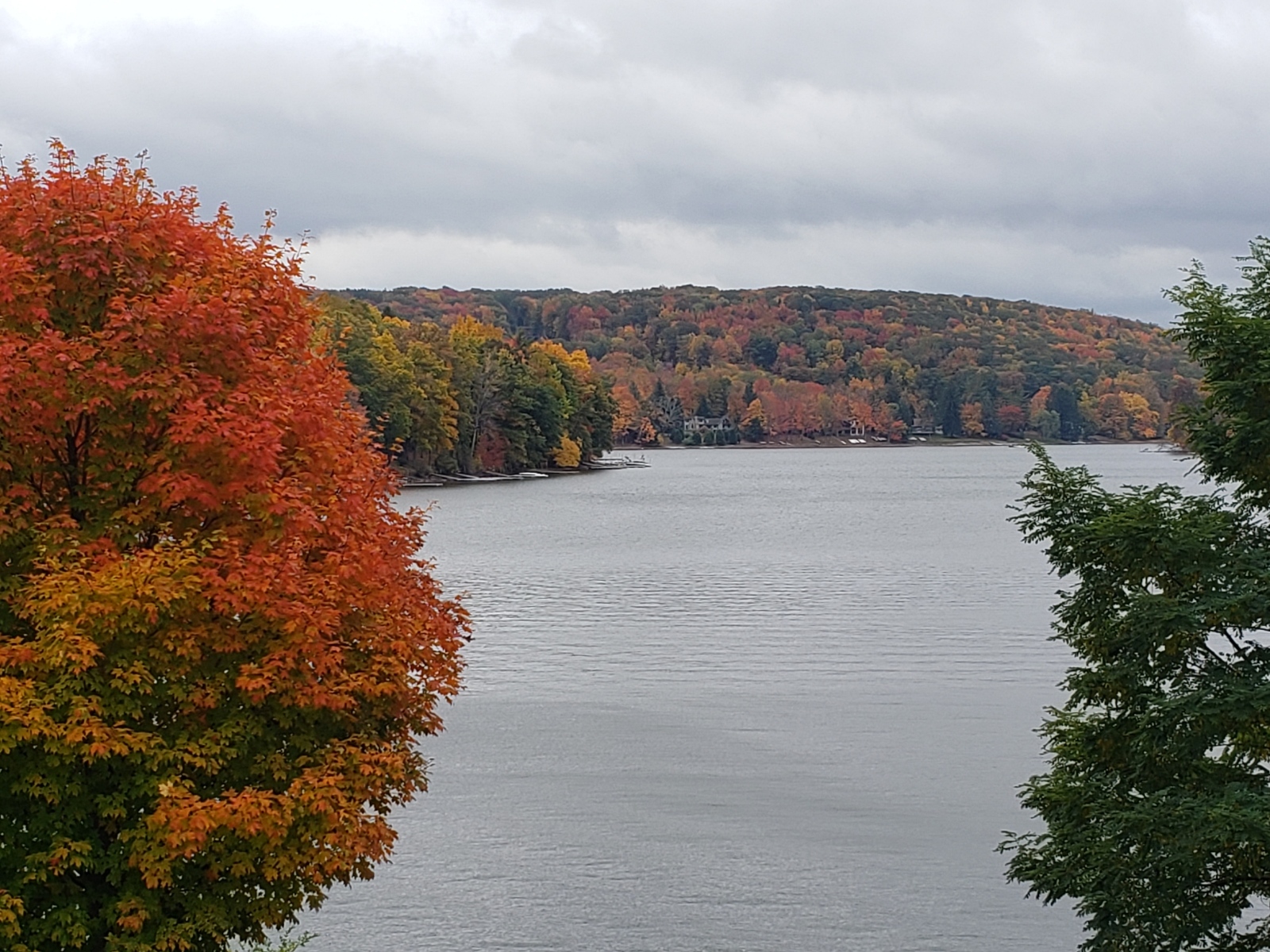
On a recent October Sunday, the Reverend Fran Gardner-Smith and people of St. Thomas Episcopal celebrated the Feast Day of Saint Francis of Assisi with an outdoor service attended by about 50 people and 11 dogs! Following this service, Rev Gardner-Smith shared the following communication with her congregation:
“Francis is known for his love of all creatures and for creation. At our outdoor service, we heard this reading from one of Francis’ sermons entitled “Peace, birds, peace!”:
‘My brother and sister birds, you should greatly praise your Creator and love him always. He gave you feathers to wear, and wings to fly, and whatever you need. God made you noble among his creatures and gave you a home in the purity of the air, so that, though you do not sow nor reap, he nevertheless protects and governs you without your least care.’
At the service, our choir sang one of my favorite choral pieces, “For the Beauty of the Earth” arranged by the English composer John Rutter. You can hear youth from the Milwaukee Vocal Arts Academy singing it here.
I hope you can find a small way to honor St. Francis today. Take a walk outside. Admire some leaves that are beginning to turn color as we move into October. Snuggle with an animal who shares your home. Whatever your day holds, may you find beauty. “
On that same October Sunday, across town at Redeemer Lutheran, Pastor Sandy Kessinger delivered a sermon also reflecting on this beautiful time of the year and on Psalm 8 that is excerpted here:
“O Lord, our Sovereign, how majestic is your name in all the earth! When I look at your heavens, the work of your fingers, the moon and the stars that you have established; what are human beings that you are mindful of them, mortals that you care for them?”
On this important topic Pastor Kessinger had this to say (summarized from her sermon, full text can be found here.):
“Who are we that God is so mindful of us? A better question is – Do we value ourselves as much as God values us? How quick we are to look at our faults and not see our gifts.
We need to look up at the heavens and the sky, the moon and the stars, the mountains, and the oceans, and place ourselves among the manifestation of God’s glory. God orders all things and gives us infinite value and worth in spite of ourselves.
Who are we? We are children of God, a little lower than the angels, and crowned with glory and honor. And in his infinite wisdom God also gave us partners so that we do not need to go it alone. May we live into what God intended for us when God created us in his image.”
As the trees begin to turn, I will reflect on Rev. Gardner-Smith and Pastor Kessinger’s messages. I will give thanks for the beauty of the earth, my sometimes silly and beloved animal companions, and the wonderful friends I have made through Tysons Interfaith – all members of the same human family, valued and partners in spiritual living.
.
